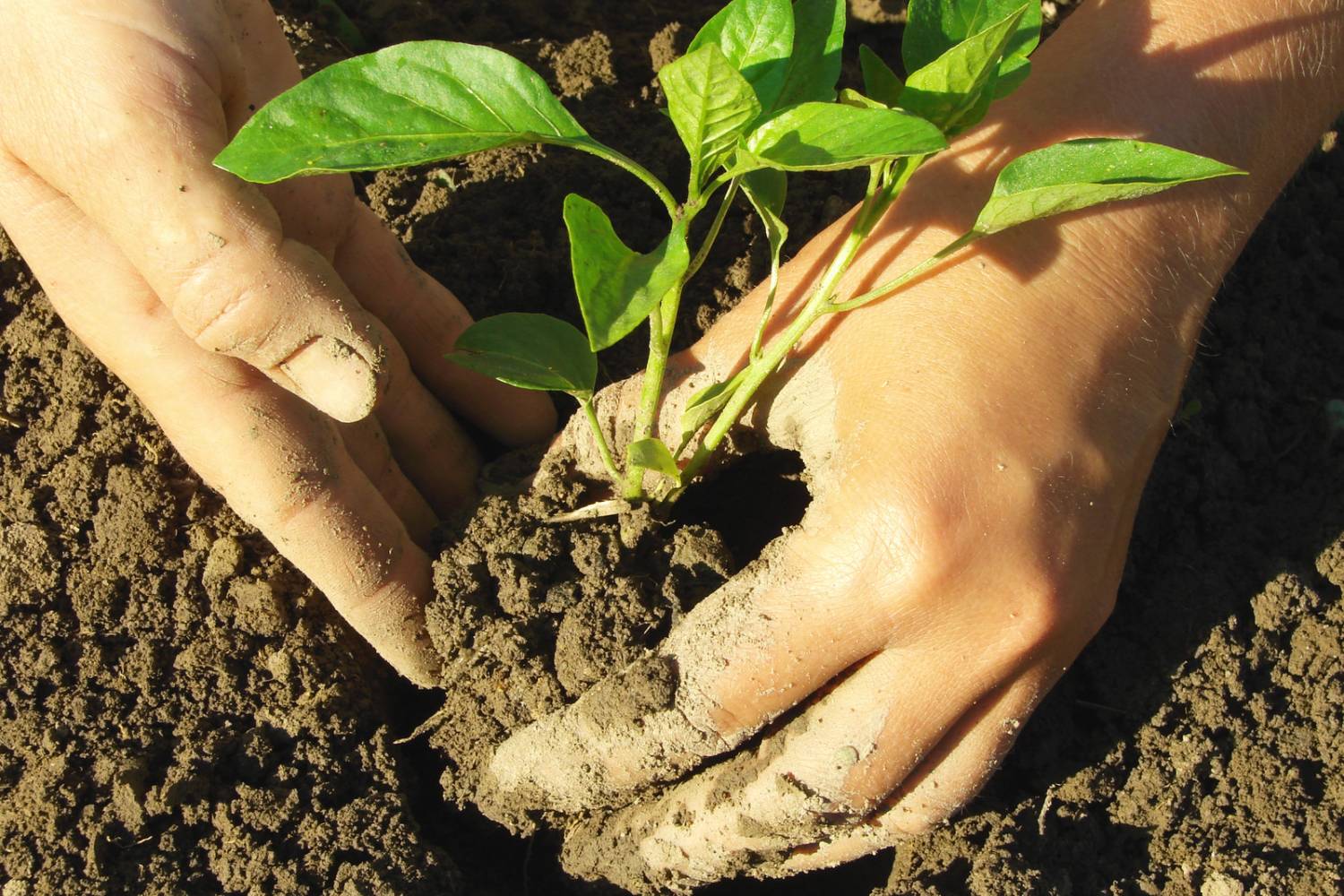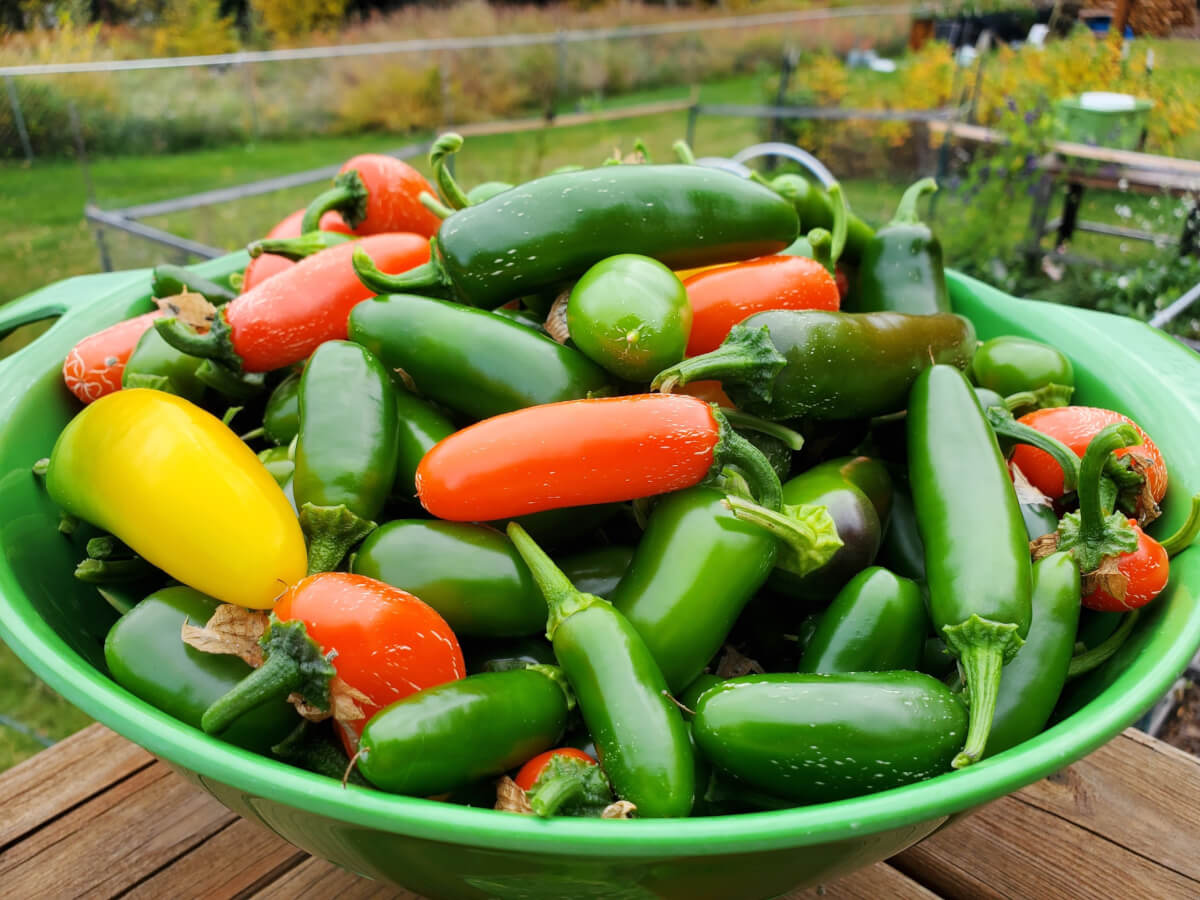Best Fertilizers for Peppers: Make The Most Of Plant Health and Return
Best Fertilizers for Peppers: Make The Most Of Plant Health and Return
Blog Article
Organic Vs. Synthetic Fertilizers: Which Is Best for Nurturing Healthy And Balanced Pepper Plants?
In the realm of supporting healthy pepper plants, the option between organic and synthetic plant foods stands as an essential choice with far-ranging ramifications. While both options objective to provide necessary nutrients to sustain plant development, the nuances of their effect on the soil, plant wellness, and the environment stimulate a dispute that echoes throughout the horticulture neighborhood. Comprehending the distinct benefits and possible risks of each fertilizer type is vital for pepper farmers seeking to enhance their returns while maintaining an eco-conscious and lasting method.
Advantages of Organic Fertilizers
Organic fertilizers supply a sustainable and environmentally-friendly technique to nourishing pepper plants, giving necessary nutrients without using artificial chemicals. These all-natural plant foods are acquired from organic resources such as compost, manure, bone meal, and algae, promoting dirt health and wellness and biodiversity. Unlike synthetic fertilizers, organic choices release nutrients gradually, ensuring a balanced and stable supply for pepper plants to prosper.
One considerable benefit of natural plant foods is their capability to boost dirt framework and water retention. By boosting dirt wellness, organic plant foods advertise advantageous microbial task, which aids in nutrient uptake by pepper plants. Furthermore, organic fertilizers minimize the threat of chemical run-off, safeguarding water resources from contamination and safeguarding the setting.
Additionally, natural fertilizers add to lasting dirt fertility by promoting the growth of beneficial dirt microorganisms. These microorganisms assist damage down raw material, releasing nutrients in a type that is quickly accessible to pepper plants. best fertilizers for peppers. By fostering a healthy and balanced soil community, natural plant foods support sustainable pepper growing methods that profit both plants and the setting
Downsides of Synthetic Fertilizers
Synthetic fertilizers, as opposed to their natural equivalents, posture numerous disadvantages when utilized to nourish pepper plants, affecting both plant health and wellness and ecological sustainability. One major disadvantage of synthetic fertilizers is their tendency to leach nutrients from the dirt swiftly. This fast leaching can result in nutrition imbalances in the dirt, creating plants to deal with shortages or toxicities. In addition, artificial fertilizers can harm advantageous dirt microorganisms, such as earthworms and advantageous microorganisms, interfering with the dirt ecosystem's equilibrium.
Furthermore, the overuse of synthetic plant foods can contribute to water air pollution. Excess plant foods not soaked up by plants can clean away right into water bodies, causing eutrophication, where algae flowers deplete oxygen degrees in the water, hurting marine life. Artificial fertilizers are generally obtained from non-renewable resources, such as fossil fuels, contributing to carbon emissions and ecological degradation throughout their production.
Nutrient Absorption Comparison
When comparing synthetic and organic plant foods in terms of nutrient absorption, natural plant foods have the benefit of giving an extra well balanced and slow-release resource of nutrients. Organic plant foods have a reference selection of macro and micronutrients that are not only helpful for the plants yet likewise promote healthy soil microbial task, which assists in nutrient uptake.
Furthermore, organic fertilizers enhance soil structure and water retention ability, enabling pepper plants to accessibility nutrients more successfully. This improved dirt quality helps with origin growth, making it possible for far better nutrient absorption. Artificial fertilizers, although at first improving plant development because of their high nutrient concentrations, might prevent long-lasting nutrient absorption by derogatory soil health in time.
Ecological Effect Factors To Consider

On the various other hand, synthetic plant foods, although typically more concentrated and instantly readily available to plants, can have detrimental effects on the atmosphere otherwise applied correctly (best fertilizers for peppers). Their production needs high power inputs, resulting in greenhouse gas emissions and contributing to environment change. The drainage of excess artificial fertilizers can infect water resources, leading to eutrophication and damaging aquatic ecosystems.
Finest Fertilizer Practices for Peppers
When fertilizing pepper plants, optimizing nutrient uptake and reducing environmental effect are crucial factors to consider. To achieve this, it is necessary to comply with best plant food practices customized to the particular needs of pepper plants. One critical important source technique is to carry out a soil test before using any kind of fertilizers. This examination can figure out the pH degree of the soil and determine any kind of nutrient deficiencies, leading you in picking one of the most appropriate fertilizer solution.
Another crucial practice is to fertilize pepper plants at the appropriate time. Typically, peppers gain from getting plant food at growing and afterwards again when they begin to blossom. Over-fertilizing can result in nutrient imbalances and harm the plants, so it is important to follow recommended application rates.
In addition, picking a well balanced fertilizer with an NPK proportion that fits pepper plants' demands is basic. Ultimately, integrating synthetic and organic plant foods carefully can assist support healthy and balanced pepper plants while minimizing ecological influence.
Conclusion

Organic published here plant foods use a lasting and environmentally-friendly method to beneficial pepper plants, giving essential nutrients without the usage of synthetic chemicals. Unlike artificial fertilizers, organic alternatives release nutrients gradually, making certain a balanced and stable supply for pepper plants to flourish.
Synthetic fertilizers, in contrast to their natural counterparts, pose numerous disadvantages when utilized to nourish pepper plants, affecting both plant health and wellness and environmental sustainability. When comparing natural and synthetic fertilizers in terms of nutrient absorption, natural plant foods have the advantage of giving a much more balanced and slow-release source of nutrients.In addition, natural fertilizers boost soil structure and water retention capability, enabling pepper plants to access nutrients more successfully.
Report this page